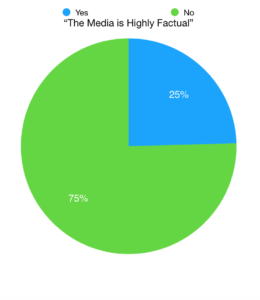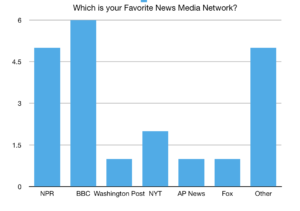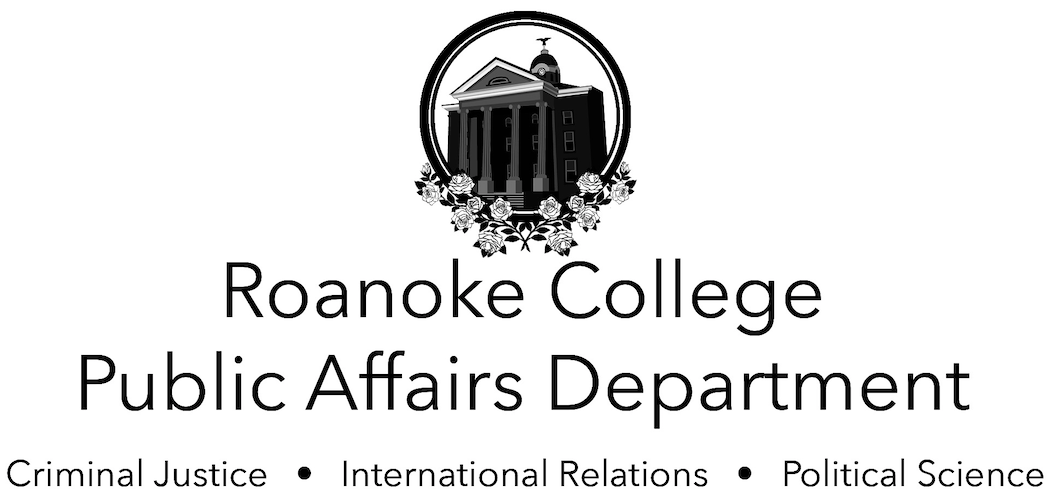With the rise of fake news, Americans are having trouble now more than ever identifying the line between the real and the fake. The relationship between the media and the American people is crucial to the structure of our democracy. Philosopher and founding father Thomas Jefferson once said, “were it left to me to decide whether we should have a government without newspapers or newspapers without government, I should not hesitate to prefer the latter.” With this relationship built on trust slowly dissolving, we may soon see changes in the way which our democracy functions.
The Public Affair’s Media Team wanted to see how the national decline in media trust reflected in our on-campus community. To do so, we posted a poll on our Instagram account to hear from our students.
We first asked students if they believe the news media is “highly factual.” Out of 57 voters, 25% believed the media to be “highly factual,” while 75% disagreed.

When asked if they believed the media was “often inaccurate,” 81% of those voters agreed, and 19% of voters disagreed.

Students were also asked if they had considered the previous two questions before, to which 65% responded “it’s all I think about,” and 35% did not believe it concerned them.
When asked to point on a continuum how much they “trusted news media,” 14 out of 48 students indicated having little to no trust in the media. No students showed that they completely trusted the media. The average answer was significantly below neutral, demonstrating that our students are aligned with the national decline in media trust, showing that young people are increasingly losing faith in the media.
The previous three questions highlighted that the relationship between Roanoke Public Affair’s students and their relationship with news media correlates with national trends—overall students do not have high levels of trust in the news media. Our statistics demonstrated that ¾ of students did not believe the media to be highly factual, and a significant majority again thought of the media as inaccurate. The most notable finding involved the continuum results. Of the 48 students who answered, not a single student notified that they completely trusted the media. This notion would have been considered detrimental to first amendment thinkers.
It is clear that a majority of Roanoke Public Affairs students do not trust the American media. Which networks have earned their trust? When asked which news media networks students consumed most, answers varied from Fox News to the Wall Street Journal (WSJ); even to international broadcasters like El Mundo and the British Broadcasting Corporation (BBC).

The “Other” category is a collection of various smaller news sources which were referenced by students (i.e. WSJ, The Skim, Drudge Report, The Economist, and El Mundo). The Washington Post, Associated Press, and Fox News, all well-established and influential media networks, only received one mention. The most popular news networks were the BBC and National Public Radio (NPR). Only one of these networks is an American media conglomerate. More interestingly, both broadcast networks are public, meaning they are government run, and funded by both public funds and privet donations. Could this mean our generation is leading towards a government-lead broadcasting, rather than privet media? What would this shift mean for founders who preferred “newspapers without government,” to have newspapers run by government?
Claire Kivior
Editor
